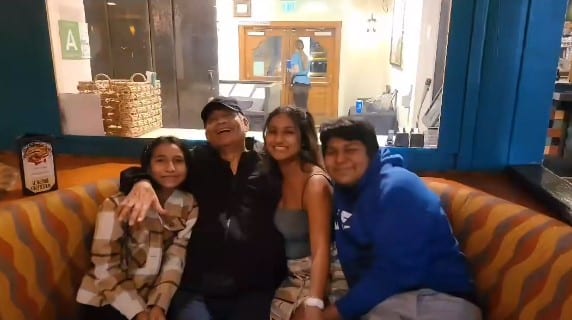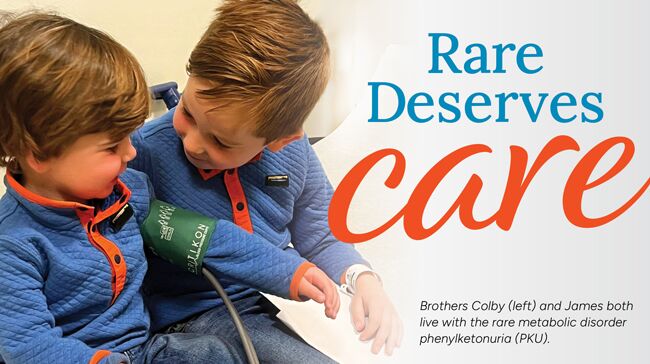By Dulce Q.
This is the story of my extraordinary father, a man who courageously faced dementia, triumphed over colon cancer, and grappled with the relentless advance of Amyotrophic Lateral Sclerosis (ALS), a rare and debilitating neurodegenerative disease.
In the years before ALS entered our lives, my father’s unwavering strength was tested by a different adversary. In 2019, he was diagnosed with mild cognitive dementia. This diagnosis, however, did not deter him from cherishing life and creating beautiful memories. In 2020, COVID-19 entered the picture, leading to a lengthy hospitalization that left us hopeful for his recovery. Ultimately, he was unable to regain his pre-illness independence. The challenges then mounted in 2021 with a stage 3 colon cancer diagnosis. Despite the difficulties of this battle, my father approached it with unwavering hope and determination.
In November 2021, my father began to experience initial symptoms of ALS, the disease that gradually crept into our lives. At first it was subtle, manifesting as inexplicable weakness in his right arm. We couldn’t quite explain it, but we knew something was wrong. During this time, he had been undergoing chemotherapy, to which some doctors had attributed his muscle weakness to the treatment. However, as weeks turned into months, his strength continued to wane, despite him receiving physical and occupational therapy. Simple daily tasks like eating, bathing, and grooming became increasingly difficult.
As the eldest child, I stepped into the role of primary caregiver, quitting my job to ensure that my father received the care and support he needed within the comforting confines of our home. Despite months of visiting multiple neurologists and enduring a battery of tests, including MRI and CT scans, no clear diagnosis emerged for the rare muscle disorder, causing his progressive deterioration. It was a trying period, watching my father lose his ability to speak, self-feed, chew, or even walk without assistance.
Then, in November 2022, during one of our many hospital visits, a doctor made a sobering speculation based on the alarming rate of his deterioration. He gave me a heartbreaking timeframe of 6-9 months to prepare for my father’s inevitable passing. As his condition continued to decline, I confronted the agonizing decision to place him in a nursing home for his safety. However, I was not willing to give up the fight to uncover the cause of his suffering.
Months passed with no definitive answers. We watched helplessly as his muscles wasted away, leaving him frail and unable to perform tasks that were once second nature to him. Our hope for a recovery gradually gave way to a gnawing fear that something much more sinister was unfolding within his body.
In April 2023, we entered the office of our fifth neurologist, clinging to hope. In that pivotal moment, the doctor uttered the words we had long sought after – ALS. A complex wave of emotions enveloped me – anger, relief, and confusion.
This diagnosis provided a glimmer of hope, as it meant we could finally devise a more informed care plan for my father. Just two months later, on that fateful day, June 20, 2023, my father’s struggle with ALS reached its heart-wrenching conclusion. His battle with respiratory complications finally led him away from us, marking the end of his journey with ALS.
It is extremely heartbreaking to know that the future of ALS remains challenging, as there is currently no cure. The prognosis typically involves a gradual loss of motor function, which eventually leads to severe disability. It is frustrating to see how ALS slowly starts diminishing the autonomy of a person as it begins to impair speech, swallowing, walking, and even breathing as the disease progresses.
However, I remain hopeful that the collective efforts of people speaking on their journey with ALS can assist research to better understand the underlying causes of ALS and develop potential treatments. Promising avenues of research include exploring genetic factors, investigating new drug therapies, and improving support for patients in terms of symptom management and quality of life. At the forefront of these research efforts, the ALS Association stands funding worldwide research along with John Hopkins, UCLA, and Cedars-Sinai.
I share my story as a tribute to my beloved father, and in doing so, I aim to raise awareness about the challenges faced by individuals and families grappling with ALS. My first encounter with this disease came in 2015 during the viral ice bucket challenge, which brought some attention to the condition. However, it humbled me to realize that despite that exposure, I did not recognize the signs when it struck my own father. This realization also shed light on a larger issue: even among medical professionals, there can be a lack of awareness and understanding regarding ALS.
To bridge this gap and offer support to others on similar journeys, I’ve created an Instagram page where I share the intimate and heartfelt account of my father’s battle. My hope is to foster a community of caregivers who can find solace and strength in shared experiences. Additionally, I aim to provide valuable resources that were instrumental in my caregiving role. Ultimately, my goal is to cultivate a space of warmth, understanding, and resonance, where individuals and families facing ALS can come together, share their stories, and find comfort in knowing they are not alone.
Dulce and others will participate in a NORD Community Conversation about rare disease caregiving taking place virtually on November 30. Caregivers, register to attend here.
Watch footage of Dulce’s father’s journey below, and follow her continued advocacy on Instagram.




